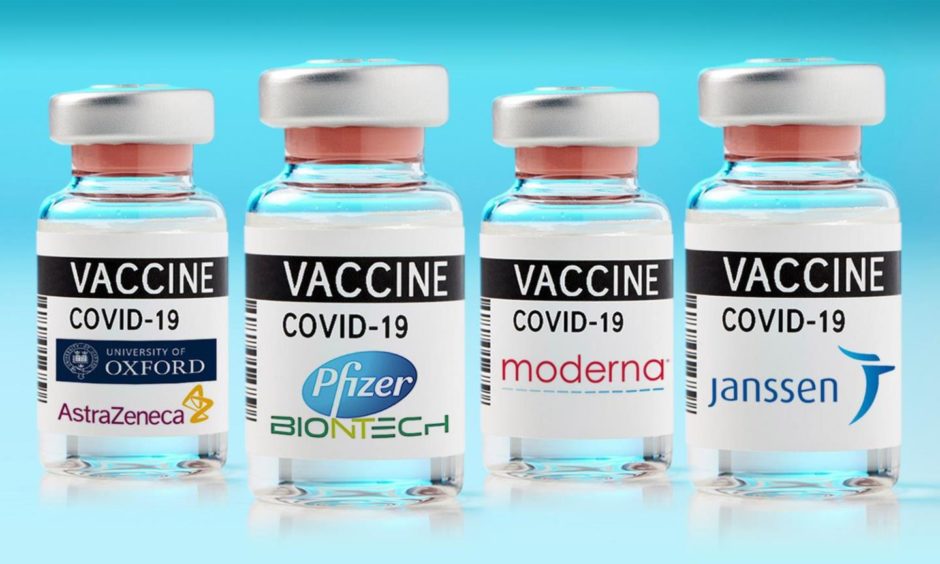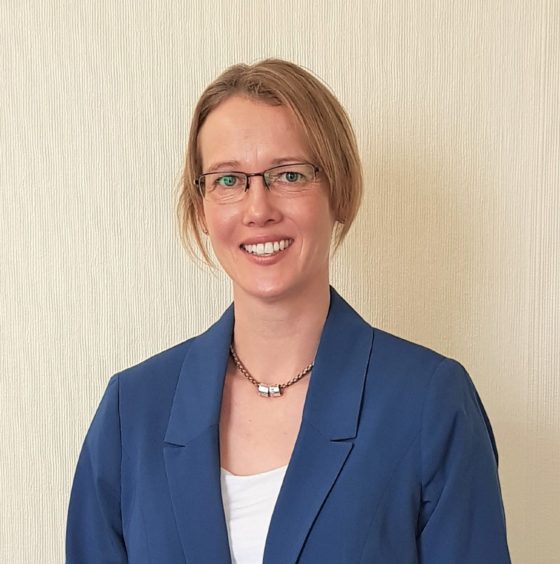Rising Covid-19 case numbers in Tayside are being directly linked to football fans gathering to watch Scotland’s Euro 2020 matches.
Peter Davidson, a non-executive board member at NHS Tayside, said at a meeting on Thursday “we all live in the real world” and can see cases are linked to the football tournament.
‘Busloads’ of infected football fans
For the first time during the pandemic, recent case rates have been substantially higher among men than women, leading to suggestions many males have been gathering in large groups indoors to watch the games.
Scotland also recorded 2,999 cases on Thursday — the highest ever daily figure for the second day in-a-row.
312 of these are in Tayside.
Mr Davidson, director at Montrose Football Club and former head of sports science at Dundee United FC, said there has been a “real lack of adherence” among fans.
He said: “There was a busload of fans coming back to Perth from London [in which at least one passenger tested positive] and I’ve heard just this morning a busload of Covid-infected fans has returned to Angus.
“I wonder whether this is an opportunity for some targeted marketing around this.
“Can we use social media to engage with our stakeholders? Whether that is the Scottish Football Association or our local Tayside clubs to say to fans ‘you’ve had your fun’.
“There’s been a real lack of adherence in the stadiums and garden parties and pubs.
“It’s now time for you to play your part and get vaccinated and get tested.”
One attendee at the board meeting even suggested Scotland being dumped out of Euro 2020 by Croatia on Tuesday evening could be beneficial in fighting rising case numbers.
Dundee councillor and non-executive board member at NHS Tayside Ken Lynn said: “Every cloud has a silver lining. Perhaps our elimination from the Euros was the silver lining in that particular cloud.”
Hospital admissions to rise in next 10 days
NHS Tayside’s director of Public Health has warned hospital admissions will soon rise because of the spike in cases.
Dr Emma Fletcher said more people will inevitably suffer serious illness despite most vulnerable people now being fully vaccinated.
Scotland’s First Minister Nicola Sturgeon has stressed recently the link between cases and serious illness has been “weakened” by vaccines but not “broken”.
Dr Fletcher said the health board, in conjunction with local authorities, had managed to stabilise case numbers last week but much of this progress has been lost.
“Even in these past four days, the picture has changed considerably,” she said on Thursday morning.
“There has been a significant increase in cases across Scotland in the past 48 hours.”
She added: “We currently have 21 people in hospital with Covid [roughly 50% of these have had a first dose and 50% are unvaccinated] and that has doubled in the past 10 days.
“Given there’s an approximate 10-day interval between people becoming positive and needing medical attention, we will see hospital admissions increase further in the next few days unfortunately given the recent increases.
“It is utterly crucial that we push again, get back on top of the virus and decrease our infection rates as we’ve done previously.
“We must continue to follow all guidance as this really is a precarious point in time.”
The impact of the vaccination programme has meant Scotland is now in a different situation compared to the first two waves.
At the previous peak in January, there were 189 admissions to hospital in Tayside despite lower case numbers.
Two doses of a coronavirus vaccine ‘crucial’
38% of eligible people in Tayside however are still to receive a second dose and Dr Fletcher said both doses are “absolutely crucial” against Scotland’s most dominant strain of Covid-19 — the Delta variant.
She said: “We are one of the boards with the greatest [vaccine] coverage in our most at-risk population.
“But there is still a sizeable proportion of the population still to get both doses.
“Therefore the virus can still spread and people still need medical attention.
“The difference between hospital admissions in January compared to now is remarkable and is due to the vaccination programme but we cannot let this get away from us again.”
Tayside is still estimated to be around two and a half months away from all eligible people being fully vaccinated.
This includes the two weeks needed for the second dose to take full effect.
Dundee, in particular, has lower vaccine rates overall so far than other areas of Tayside and also has one of the highest case rates per 100,000 people of any area in Scotland.
56% of eligible people in the city have received a second dose, compared to 66% in Angus, and 65% in Perth & Kinross.
Dr Fletcher says this is because the city has a younger population made up of many students. The roll-out has only just started to reach people aged under 30 in the past couple of weeks.

A spokesperson for NHS Tayside said, “The number of cases of COVID-19 continues to rise as hospitality opens up and more people are travelling around the country and meeting up. We have seen some cases in Tayside linked to travel to football games across the country.
“Now more than ever, it is vital that we all continue to follow the guidance, take up the offer of vaccination when it comes and get tested regularly. This is important even if you have been vaccinated.
“Asymptomatic testing is available across Tayside and people can attend and pick up a lateral flow testing kit from their pharmacy.
“We have now opened drop-in clinics for all adults.
“If you have not yet had your first dose appointment or are at greater than eight weeks from your first dose and need your second dose you can just drop in to Dewar’s Vaccination Centre in Perth or the Caird Hall in Dundee. No appointment is required.”



